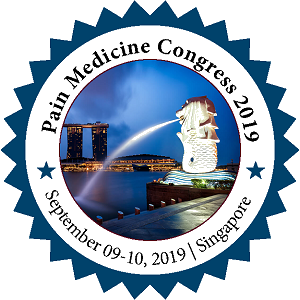Rajeev Shah,
Parul Institute of Medica Sciences, India
Title: Is only reduction in CD4 count responsible for secondary infections seen in HIV patients?
Biography
Biography: Rajeev Shah,
Abstract
The significant mean CD4 count fall had been observed both in HIV positive patients as well as even with the patients of severe tuberculosis without HIV infections. But it has been observed that generally, the patients with tuberculosis does not seem to suffer that much from any secondary or opportunistic microbial infections, while in contrast, the HIV patients with same mean CD4 count suffer from plenty of opportunistic or secondary infections. The objective of this study deals with emphasizing the pivotal role of CD4 count in TB/HIV patients in maintaining their immune system effective (by maintaining CD4 count) and thus decreasing MDR/XDR, morbidity and mortality among these patients, calculating average mean CD4 count for Indian scenario in cART (Combined Antiretroviral Treatment) era and discussing and suggesting new scope of treating HIV patients for prevention of secondary infections. Method: All the 961 HIV infected patients early morning sputa were screened for AFB and few of the samples were even cultured on LJ medium. All patients’ CD4 count was also evaluated by flow cytometry method within one week of sputa collection. Seven other published work of HIV/TB patients were analyzed in relation to CD4 count. Moreover other five published research on CD4 in TB+ve/HIV-ve patients were also discussed in this article. Results: Out of 961 patients with HIV/RTI, 308(32.06%) found positive for tuberculosis with mean CD4 count found to be 198.5 and 105.9 cells/μl for pulmonary TB and for extra pulmonary TB respectively in present study. The average mean CD4 count from seven research studies from India were found to be 169.75 and 145.3 cells/μl for pulmonary and extra-pulmonary TB respectively, in TB/HIV co-infected patients on cART. Brenda et al., (1997) and other four found that in advanced/sever TB but HIV-negative patients mean CD4 count found to be 341+116. It means in severe tuberculosis patients CD4 count may reduce up to 198 cells/μl but in TB patients. But the difference between HIV and TB patients found by researchers was the CD4: CD8 ratio which always almost maintained in TB patients only but not in HIV patients. Even some researchers like MA Hauman, Fiske CT et al., (2015) could not find increased Intracellular Bacterial Infections (ICBIs) in only TB patients (HIV-ve). Conclusion: HAART and ATT (Anti Tubercle Treatment) both are equally important in maintaining immune system (maintaining CD4 count) of TB/HIV co-infected patients. In India, clinician should more suspect for TB at around mean CD4 count of 169.75 even if found negative by AFB staining for, but should be confirmed by culture on LJ medium, PCR or by any other latest technique in HIV-positive patients. It is not only reduced CD4 count responsible for secondary infections seen in HIV patients but it might be spoiled CD4:CD8 ratio, or in other world increased CD8 cells in comparison with CD4 cells might be responsible for secondary infections seen in HIV patients to confirm this further research should be done. If it is due to only this reason in severe TB with CD4 count below 200 cells/μl also secondary infections are usually not seen, then if we maintain CD4:CD8 ratio in HIV patients, by giving anti-antibodies to CD8 appropriately or by any other methods, it should theoretically reduce/stop secondary or opportunistic infections in HIV patients also. Further intensive practical research is required to find out new scope to reduce/stop secondary infections in HIV patients in this direction

